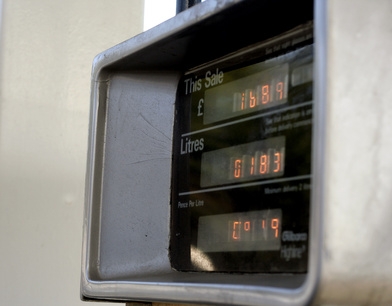
Many organizations, including the United States Army, are studying alternative resources of fuel. According to Peter Kushnir, an instructor at the Army Logistics Management College in Virginia, hydrogen is one such alternative fuel that could serve the Army in the future. Like all potential fuel sources, hydrogen has its advantages and well as its drawbacks, and all information must be taken into account before use can begin.
According to Kushnir, hydrogen makes up more than 75 percent of Earth's environment. It is the most abundant element on the planet. He states that hydrogen makes up about 11 percent by weight of water, and could be derived from water all over the planet. Plant matter can also produce hydrogen, so those who use hydrogen as a fuel could essentially grow and renew their fuel at any time.
Though the potential exists for hydrogen to be harvested from water and plant matter, those production methods are still being researched; Kushnir advises that there are no ways to commercially produce hydrogen from these methods. Current production methods still rely on nonrenewable resources, which can create a potential problem in having enough hydrogen fuel to go around.
Kushnir advises that currently hydrogen is produced from natural gas, which results in a highly efficient, low-cost way to produce fuel. However, natural gas is nonrenewable. Other sources for hydrogen production, such as coal and petroleum, pose the same problem.
This problem may be worsened by predictions for petroleum production. According to Kushnir's research with the Army, petroleum production is predicted to decrease 25-billion barrels of oil per year to less than 19-billion barrels per year between 2010 and 2025. He states that 19-billion barrels per year is less than was being produced during the gas shortages that racked the United States in the 1970s; this lack of petroleum could destroy supplies of hydrogen fuel.
According to Columbia University research, hydrogen fuel cells are twice as efficient as regular internal combustion engines, which are found in most modern vehicles. Kushnir estimates that hydrogen stores 2.8 times more energy than gasoline when compared with the same mass, and so produces more energy with less fuel.
Better efficiency could result in less fuel needed overall, and in less pollution from released waste.
Kushnir states that liquid hydrogen, which would be the preferred form of hydrogen when used as a fuel, creates a significant storage problem.
Liquid hydrogen takes up four times the volume of liquid gasoline; therefore, storage would require four times as much room as needed for gasoline. This could create a problem for long-term storage in fuel stations, as well as use in automobiles that may not have the space to accommodate enough fuel to run for long periods of time.
Hydrogen is also extremely flammable and highly explosive, and so storage facilities would have to be carefully monitored to ensure safety at all times. Similarly, the design of cars would have to compensate for the storage and safety issues.